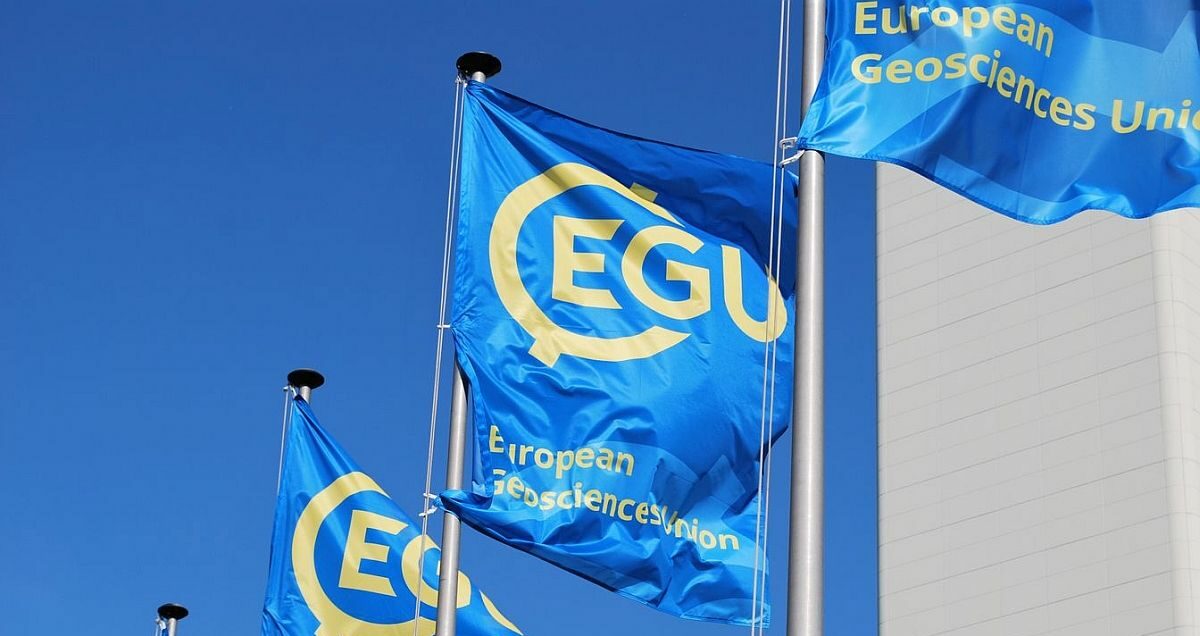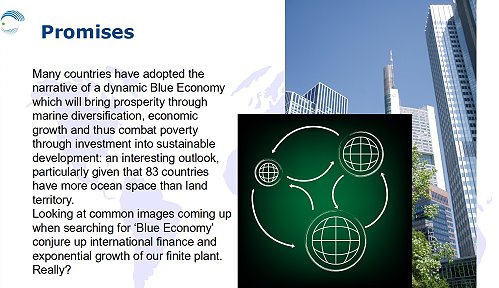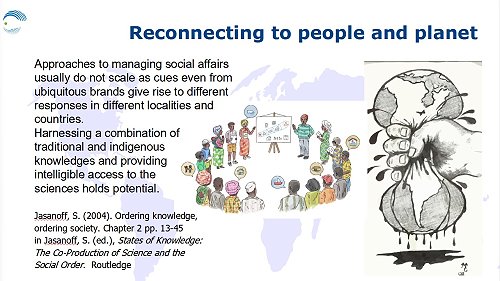 The annual Assembly of the European Geosciences Union takes regularly place in Vienna because of the huge conference facilities at the Austria Center Vienna able to accommodate the many participants, usually upwards of 10,000. The 2024 edition took place 14-19 April. As in previous years, Mundus maris contributed a presentation to the stream of research work sponsored by the International Association for the Promotion of Geoethics (IAPG). This year's main session was convened by Silvia Peppoloni with co-conveners Svitlana Krakovska, Giuseppe Di Capua, and David Crookall under the title "Geoethics: The significance of geosciences for society and the environment".
The annual Assembly of the European Geosciences Union takes regularly place in Vienna because of the huge conference facilities at the Austria Center Vienna able to accommodate the many participants, usually upwards of 10,000. The 2024 edition took place 14-19 April. As in previous years, Mundus maris contributed a presentation to the stream of research work sponsored by the International Association for the Promotion of Geoethics (IAPG). This year's main session was convened by Silvia Peppoloni with co-conveners Svitlana Krakovska, Giuseppe Di Capua, and David Crookall under the title "Geoethics: The significance of geosciences for society and the environment".
The work of the IAPG gains traction with a considerable number of national chapters and a good mix of presenters, some already 'on board' for some time and many 'new' ones. To 'give the ocean a voice' Cornelia E Nauen of Mundus maris presented a reflection titled "Can geosciences help inserting social justice notions into Blue Economy narratives?" We cite the abstract as follows:
 The ocean has started to attract more attention in the recent past with the notions of Blue Economy and Blue Growth becoming rallying points for a new frontier for investments [1]. Many countries and institutions prepare policy papers promising to end poverty, a push for new technologies and profits to fund the development. A recent systematic review of the literature [2], however, found no trace of articulated ethics and justice notions in midst of all the lofty hope and hype surrounding the often blurred concepts. The increasing financialisation of technological developments accelerated through digitalisation and the internet are creating increasing injustices to humans and harm to nature. But, as Rushkoff argues [3], the possibilities for feedback and more circular reasoning have potential to teach everybody that there is no escape from the natural world, thus weaning us from the hyperbole of permanent exponential growth.
The ocean has started to attract more attention in the recent past with the notions of Blue Economy and Blue Growth becoming rallying points for a new frontier for investments [1]. Many countries and institutions prepare policy papers promising to end poverty, a push for new technologies and profits to fund the development. A recent systematic review of the literature [2], however, found no trace of articulated ethics and justice notions in midst of all the lofty hope and hype surrounding the often blurred concepts. The increasing financialisation of technological developments accelerated through digitalisation and the internet are creating increasing injustices to humans and harm to nature. But, as Rushkoff argues [3], the possibilities for feedback and more circular reasoning have potential to teach everybody that there is no escape from the natural world, thus weaning us from the hyperbole of permanent exponential growth.
Here it is argued that critically engaged ocean and geo-sciences with their inherent message of a changing planet through deep time can contribute to debunking the ahistorical promise of fixing self-created problems by starting on a presumed ‘clean slate’. We frequently observe a pattern of wanting to solve the damage provoked by one technology with more technology, e.g. deep sea mining [4] or further technology development in fisheries and aquaculture [5]. At country level, these deliberately disruptive industrial approaches often pay little attention to working with the affected small-scale wild food producers who account for a quarter of global production.
 Instead, harnessing a combination of traditional and indigenous knowledges and providing intelligible access to the sciences holds significant potential for less destructive pathways. That would also be consonant with the promotion of knowledge co-creation during the UN Ocean Decade in pursuit of a vision of ‘the science we need for the ocean we want’. Practice of co-creation will require some rethinking of the self-image of many sciences and adaptations to typical project formulations and flows. In return, this is expected to produce valuable new insights in addition to opportunities for cooperation and blue justice as steps towards transformations based on ethical principles.
Instead, harnessing a combination of traditional and indigenous knowledges and providing intelligible access to the sciences holds significant potential for less destructive pathways. That would also be consonant with the promotion of knowledge co-creation during the UN Ocean Decade in pursuit of a vision of ‘the science we need for the ocean we want’. Practice of co-creation will require some rethinking of the self-image of many sciences and adaptations to typical project formulations and flows. In return, this is expected to produce valuable new insights in addition to opportunities for cooperation and blue justice as steps towards transformations based on ethical principles.
[1] World Bank. (2016). Oceans 2030: Financing the blue economy for sustainable development. Blue Economy Development Framework, Growing the Blue Economy to Combat Poverty and Accelerate Prosperity. World Bank Group, Washington DC.
[2] Das, J. (2023). Blue Economy, Blue Growth, Social Equity and Small-scale Fisheries: A Global and National Level Review. Studies in Social Science Research, 4(1):45 p. DOI: https://doi.org/10.22158/sssr.v4n1p38
[3] Rushkoff, D. (2022). Survival of the richest. Escape fantasies of the tech billionaires. Scribepublications, UK, ISBN 978-1-915590-24-4, 212 p.
[4] Zenghui Liu, Kai Liu, Xuguang Chen, Zhengkuo Ma, Rui Lv, Changyun Wei, Ke Ma. (2023). Deep-sea rock mechanics and mining technology: State of the art and perspectives. International Journal of Mining Science and Technology, 33(9):1083-1115. https://doi.org/10.1016/j.ijmst.2023.07.007.
[5] FAO. (2022). The State of World Fisheries and Aquaculture 2022: Towards Blue Transformation. Rome, FAO. doi:10.4060/cc0461en
The slides of the powerpoint are available here.








